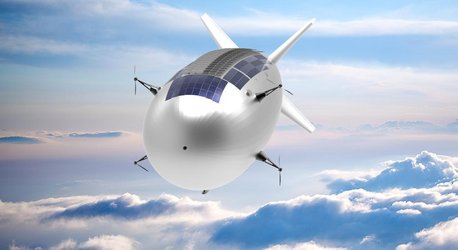Is it a bird? Is it a plane?
It may not be your actual Superman, but participants to ESA’s ɸ-week are certainly embracing some ‘superhero’ ideas for the future of Earth observation, including high-flying platforms – something between a satellite and an aircraft.
Head of ESA’s ɸ-lab Invest Office, Amanda Regan, noted, “We’ve never before had so many opportunities for Earth observation and we have to take advantage of all of this.
“There is, for example, open and free access to long-term systematic data through the EU’s Copernicus programme, technology improvements such as miniaturization, advances in information and communications technologies for all the data we are getting, a flexible ecosystem approach to help bring everything together and reusable launchers offering easier access to space.
“And, since we are trying to measure the Earth system, we need different sensors and need to use them in different ways.”
High Altitude Pseudo Satellites, or HAPS, are just one of the forms of technology that help take Earth observation into the future.
While a traditional weather balloons could be considered as HAPS, this emerging technology is designed to float or fly at high altitude like conventional aircraft but operate more like satellites.
But rather than working from space they can remain in position inside the atmosphere for weeks or even months, offering continuous coverage of the ground below.


Access the video
In addition to this novel type of platform, participants have also been discussing the benefits of small satellites.
Jaan Praks, from Aalto University Finland, said, “Small satellites have the potential to measure the heartbeat of the entire planet in real time.
“They also offer a very quick and affordable way to develop new technologies. Young people, in particular, are embracing this fast, agile approach.”
In addition to these and other platforms, we have also seen the advent of taking video from space with Earth-i’s VividX2, which is a very high-resolution satellite that deliver real-time video from space.
ESA’s Director of Earth Observation, Josef Aschbacher, noted, “There are so many different opportunities at the moment and we really are on the verge of a new era. These new platforms and ways of observing our planet make Earth observation not only more exciting than ever before, but also more useful in addressing serious issues such as climate change.”














 Germany
Germany
 Austria
Austria
 Belgium
Belgium
 Denmark
Denmark
 Spain
Spain
 Estonia
Estonia
 Finland
Finland
 France
France
 Greece
Greece
 Hungary
Hungary
 Ireland
Ireland
 Italy
Italy
 Luxembourg
Luxembourg
 Norway
Norway
 The Netherlands
The Netherlands
 Poland
Poland
 Portugal
Portugal
 Czechia
Czechia
 Romania
Romania
 United Kingdom
United Kingdom
 Slovenia
Slovenia
 Sweden
Sweden
 Switzerland
Switzerland






























